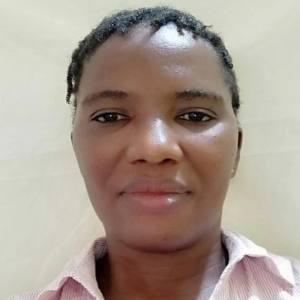Title : Implementation of artificial inoculation test to screen Ghana sumatra oil palm progenies for their level of resistance/ tolerance to basal stem rot (BSR) disease
Abstract:
Genetic resistance to Basal Stem Rot (BSR) of oil palm is a major component of an integrated control strategy for BSR disease. Thus, early detection of the level of resistance or susceptibility is of paramount importance for the breeding and sustainability of this crop particularly in Ghana. Two separate screening parameters were set to test six oil palm progenies/crosses (131, 132, 133, 135, 136 and 61) developed by Ghana Sumatra Limited. The tests were performed both under lab condition (In vitro) and on field (In vivo). In vitro parameter was done on germinated seeds arranged in random complete block design (RCBD) with three replicates and control using sterilized glass jar containing treated black soil, wood block as source of inoculum and placed in incubation chamber for three (3) weeks, whiles In vivo parameter was done at the pre-nursery stage with three-month-old seedlings, using a shade net characterized by a light filtration of around 50%. Wood blocks (WBs) made from Triplochitan scleroxylon (Wawa) infected by Ganoderma culture 12 days prior to inoculation were used as the inoculum source. Ganoderma isolates aggressiveness and progeny resistance/tolerance/susceptibility levels were determined using a culture-based method. Each Ganoderma isolate in this study was tested with three germinated seeds per replicate in six blocks for a total of 144 seedlings per isolate. Seedlings with WB without inoculum served as a negative control. Disease severity index (DSI) was employed alongside the vegetative growth measurement of infected oil palm seedlings. Disease confirmation was performed through Koch’s postulate and molecular characterization. The study showed variance degree of resistance ranging from partial to total resistance among all the progenies tested. The first disease symptoms In vitro appeared in two weeks after inoculation and that of In vivo appeared between 2-3 months after inoculation. The rate of disease transmission and progenies damage are affected by variations in pathogen aggressiveness. Isolate GA was identified as the most aggressive and highly virulent, which was also the only one that resulted in early seedling mortality. Analyses for each tested crosses showed positive correlation between 6 and 8 weeks indicating that early selection is realistic and there is minimal interaction of disease susceptibility with time. Lab (In vitro) results compared with field (In vivo) results, showed cross 61 as highly-susceptible progenies with DSI of 60% seedlings death. No initial Ganoderma invasion of young palms by the fungus was observed at the peripheral area of the lignified cavity of the tested plant.
Keywords: Ganoderma sp., in vitro, in vivo, disease aggressiveness, wood block
Audience Take Away:
- The information obtained will be useful for the development of molecular techniques for early detection of Ganoderma infection and management
- Generally, the results of this research would be beneficial to the stability of economy of oil palm producer countries through improvement in food security, job creation and livelihoods.
- The results of this study will provide baseline information for future studies by identifying potential biomarkers for screening of larger population of truly resistant palms to Ganoderma infection. More so, molecular techniques employed in this study will be of great benefit to the development and innovation of a variety of PCR- based techniques with diverse applications.
- Developers may benefit by identifying potential biomarkers for screening varietal gradation of disease tolerance and disease occurrence curve.
- Methods used are very important because they can be used to genetically improve disease tolerance by discriminating among tolerant genotypes that behave better and more efficiently in terms of disease response.
- OTHER BENEFITS:
- Patenting of some methodologies used in identification and screening of resistance (s) and Scientific publications.
- Also, healthy and disease-free oil palm seed nuts/seedlings will be produced and sold to farmers/oil palm producers thereby generating Internal generation Fund (IGF) to the beneficiary institutions.
- More over, through adoption of these technologies, disease incidence will be minimised in oil palm plantations in Ghana through early disease detections, prevention and control, this will go a long way to ensure:
- availability of quality planting materials
- increase and sustain oil palm production
- improved market value
- meet the high global demand
- increase livelihood and
- provide food security to the Ghanaian populace especially the oil palm farmers


